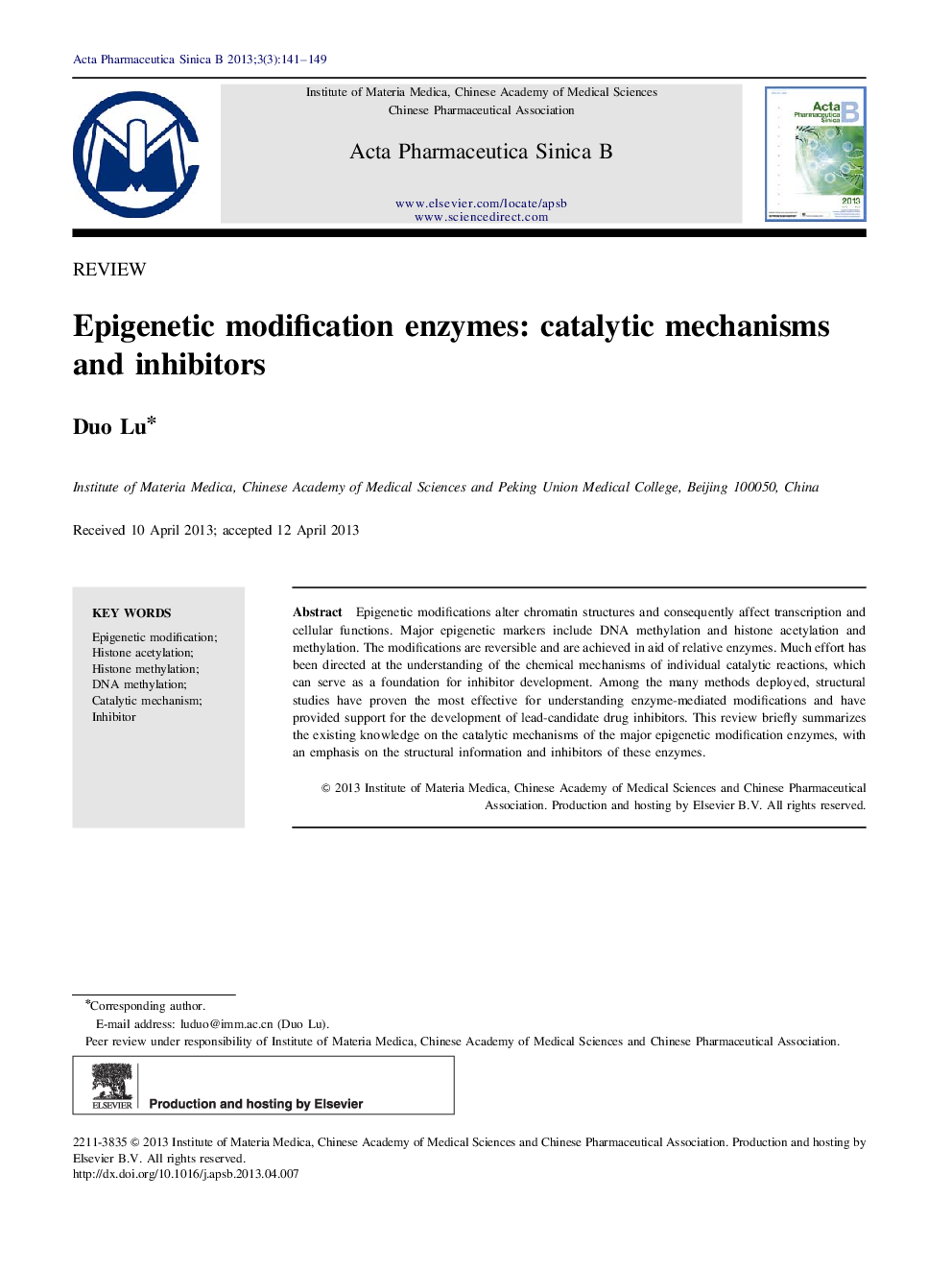| Article ID | Journal | Published Year | Pages | File Type |
|---|---|---|---|---|
| 2474587 | Acta Pharmaceutica Sinica B | 2013 | 9 Pages |
Epigenetic modifications alter chromatin structures and consequently affect transcription and cellular functions. Major epigenetic markers include DNA methylation and histone acetylation and methylation. The modifications are reversible and are achieved in aid of relative enzymes. Much effort has been directed at the understanding of the chemical mechanisms of individual catalytic reactions, which can serve as a foundation for inhibitor development. Among the many methods deployed, structural studies have proven the most effective for understanding enzyme-mediated modifications and have provided support for the development of lead-candidate drug inhibitors. This review briefly summarizes the existing knowledge on the catalytic mechanisms of the major epigenetic modification enzymes, with an emphasis on the structural information and inhibitors of these enzymes.
Graphical abstractEpigenetic modifications alter chromatin structures and consequently cell functions. This review briefly summarizes existing knowledge of catalysis mechanisms of major epigenetic modification enzymes, with an emphasis on structural information and the enzyme inhibitors. Three reversible modifications are discussed, which include histone acetylation, histone methylation, and DNA methylation.Figure optionsDownload full-size imageDownload as PowerPoint slide
